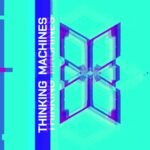
The rise of generative A.I. could reshape job roles in various industries, prompting the need for proactive measures such as training programs to ensure workers are prepared for the evolving technological landscape. How generative AI could significantly impact white-collar jobs that have historically been insulated from technological disruption.
Recently a research was published. The research, conducted by the Burning Glass Institute and SHRM, suggests that high-paying jobs held by college graduates in sectors such as finance and tech could be most affected by A.I. automation.
The prediction that generative AI will have the biggest effect on well-paid professionals in industries like finance and tech is interesting. In the past, technological disruption often impacted blue-collar or lower wage jobs more. This suggests a new paradigm.
However, the actual job losses remain uncertain. The technology may change jobs more than eliminate them outright, at least initially. Companies could reinvest the savings from automation into new areas and employees. But the risk of displacement seems real.
- Companies in industries like finance and tech spend a very high percentage (60-80% or more) of their payroll on jobs that are susceptible to automation by generative AI. This could yield major cost savings if roles like business analysts, software developers, etc. are automated.
- However, the report doesn’t actually predict potential job losses. Employers could reinvest those cost savings into growth and adding jobs. So the impact may be more about changing jobs rather than eliminating them, at least in the near term.
- Lower wage jobs in retail, restaurants, etc. seem much less vulnerable to this technology. So the biggest impacts really could be felt by affluent college grads who thought their jobs were safe.
- There is still lots of uncertainty about the scale and timing of impacts. But multiple studies agree this technology has huge transformative potential. Companies and workers need to proactively invest in training and adaptation.
Policymakers also need to be forward-looking to ensure impacts of generative AI are managed for broad-based prosperity.
It seems to be that no white-collar job is completely safe anymore. Generative AI can replicate a lot of knowledge work. But the hope is employers take the savings and create new opportunities, rather than replace workers. Preparing the workforce for an AI-powered future is crucial. An interesting study on a topic that will only grow in importance.
Impact on White-Collar Jobs: The research indicates that generative A.I. is more likely to impact white-collar workers with college degrees, challenging the assumption that automation primarily affects low-skilled jobs.
High-Paying Occupations at Risk: Occupations such as business analysts, marketing managers, software developers, database administrators, project managers, and lawyers are among those most likely to be affected. Finance and tech companies, including Goldman Sachs, JPMorgan Chase, Google, Microsoft, and Meta, have a high percentage of their payrolls susceptible to disruption by generative A.I.
Potential Savings for Companies: Adopting generative A.I. for human work could result in significant cost savings for companies. The research estimates that banks and some tech companies spend a substantial portion of their payrolls on jobs that could be impacted by A.I., potentially leading to increased efficiency and reduced labor costs.
Concerns for Job Displacement: While the report doesn’t predict specific job losses, it emphasizes the need for increased training to help workers adapt to the changing job landscape. The impact of generative A.I. on jobs is expected to result in changes to job roles rather than immediate elimination, but the technology’s improvement could alter this scenario.
Call for Investment in Training: The report highlights the importance of corporations and governments investing in training programs to prepare workers for the evolving job market driven by A.I. technology.
Uncertain Future: Despite the research efforts, the article acknowledges that the actual effects of generative A.I. on the job market remain uncertain, and predictions are educated guesses. The potential large-scale impact of A.I. is recognized, but the specific outcomes are yet to be fully understood.










